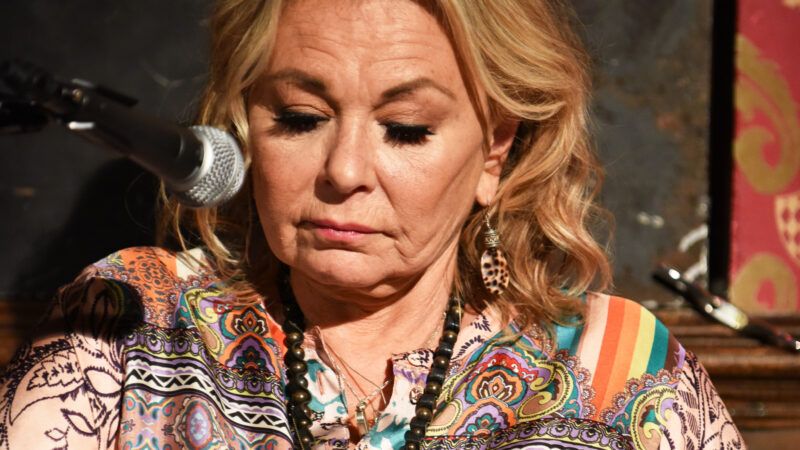Roseanne Reconsidered?
An interview with the controversial comedian.

Roseanne Barr is a comedian, actress, and one of the more notable victims of cancel culture. Back in 2018, she was enjoying a popular resurgence after a revival of her '90s sitcom, Roseanne, achieved massive success on ABC. Roseanne, the television character, and real-life Roseanne were both ardent supporters of Donald Trump, and while the show did not necessarily promote a specific political viewpoint, it was nevertheless well-liked by conservatives. Trump himself called Barr to congratulate her.
And then she tweeted.
The tweet—written while Barr was apparently in an Ambien-induced fog and sent at 2 a.m.—concerned Valerie Jarrett, a senior adviser to former President Barack Obama. Barr said that Jarrett was what would result from the union of "the Muslim Brotherhood and Planet of the Apes." Jarrett is a black woman, and thus Barr had repurposed a vicious, racist caricature: comparing a black person to an ape. Barr was universally condemned as a racist, and ABC swiftly canceled her show.
"Roseanne's Twitter statement is abhorrent, repugnant and inconsistent with our values," said the network in a statement at the time.
When I wrote about the cancellation of Roseanne—the show, and the person—I, too, said it was a "vile" tweet. And I still think it was extremely rude and offensive, as were any number of other things Barr has said over the years. But I think it's usually worth hearing people out; Barr didn't really get that chance, as ABC canceled the show without asking for an explanation or letting her address the controversy on any of the network's news programs. ABC then rebooted the show and killed her character off-screen.
In the years since the tweet, Barr has become even more associated with MAGA. She starred in a comedy special that streamed on Fox Nation and contributed to a Daily Wire cartoon show. The right has embraced her, and everyone else shunned her. Needless to say, many in the media would probably view this as an example of mainstream liberals correctly rejecting a racist.
Barr disputes that she is a racist, of course. She also disputes that there was anything intentionally racist about her tweet. In fact, she says, she had no idea that Jarrett was a black woman—she thought she was white. (Jarrett was born in Iran to American parents and is of African-American descent.) Moreover, she maintains she never wrote that Jarrett was an ape; rather, she made a reference to the film Planet of the Apes, which she describes as a movie "about fascism." Barr claims she was making a political remark—a criticism of the Obama administration's policies—not a racial one.
At least, that's what she told me. Earlier this week, Barr appeared on Rising to promote a new documentary film about her life: Roseanne Barr Is America.
We discussed the tweet at great length. My co-host, Lindsey Granger, is a moderate liberal and a black woman, and she asked Barr some very tough but fair questions about the tweet, why it was offensive, and how it was received.
It was a conversation worth having. I don't know if anyone's minds will be changed, or should be changed. You're still welcome to dislike Barr, or to think she's nuts, or to conclude that likening Jarrett to a terrorist group and a science-fiction movie was offensive regardless. You're also free to disbelieve her. Nevertheless, I was happy to hear her side of the story—and I think it's telling that most of the media coverage at the time did not include Barr's perspective on the tweet. The cancel culture mobs of 2018 did not exactly appreciate nuance.
This Week on Free Media
I am joined by Amber Duke to discuss the Los Angeles riots, the breakup between Trump and Elon Musk, and more!
Worth Watching
I've just started reading Brideshead Revisited, a novel recommended by Peter Suderman on an episode of the Reason Roundtable podcast a year or two ago. I don't know why exactly the recollection of this recommendation popped into my head after so much time had passed, but I'm enjoying the novel so far.


Show Comments (24)